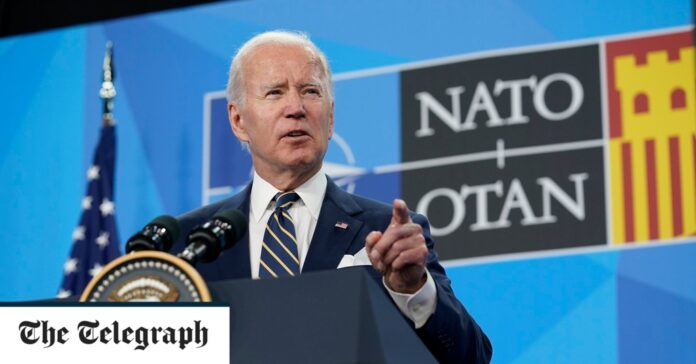The US President must start appreciating what a vital role Britain plays in the Western alliance
The Nato summit next week in Vilnius ought to be one of the most consequential in years. While Sweden’s membership application still faces Turkish objections, Finland joined the alliance officially in April, along with its sizeable army and lengthy land border with Russia. The war in Ukraine has also focused minds on the importance of investing in defence. Military budgets in many European states have begun to increase again, and rising powers such as Poland are turning into forces to be reckoned with. Nato’s great antagonist, Moscow, now appears to present a much diminished threat.
That Nato has regained some of its resolve and purpose since being described as “brain dead” by Emmanuel Macron a few years ago is, in other words, incontrovertible. Signs of consensus over its future, however, are worryingly few.
First, there is the Ukraine war itself. Kyiv’s vaunted counter-offensive has made some progress, but there has been no repeat of the great advances seen around Kharkiv and Kherson in previous months. Despite instability at home and shortages of men and armaments at the front, the Russians have had time to prepare their defences. Ukrainian leaders lament a lack of air support for their armies, with the West prevaricating over sending fighter jets to Kyiv. Even now, it is not obvious whether some Nato members want Ukraine to win, or would prefer that Russia avoided humiliation. The question of Ukraine’s future membership of Nato cannot realistically be decided until the hostilities are over.
Second is the leadership of the alliance. The UK’s favoured candidate, the Defence Secretary, Ben Wallace, withdrew from the contest to become the next secretary-general after it became apparent that he did not enjoy Joe Biden’s support. The White House, for its part, is said to prefer Ursula von der Leyen, the president of the EU Commission. Never mind that her time as German defence minister coincided with the nadir of Berlin’s post-Cold War military effectiveness, or the risk of contaminating Nato with dangerous notions of European defence integration. Some have seen in Mr Biden’s approach evidence of the president’s supposed dislike of Britain. Again, the issue has been parked. Jens Stoltenberg will continue in post as secretary-general for another year.


